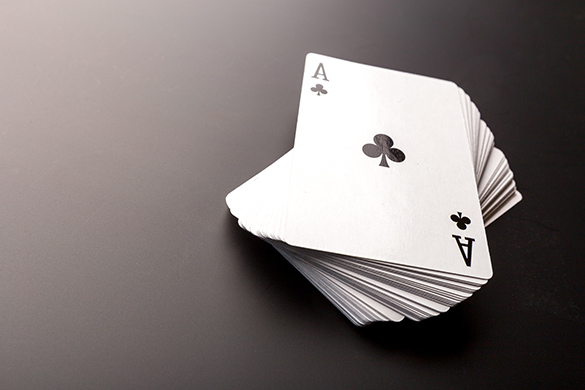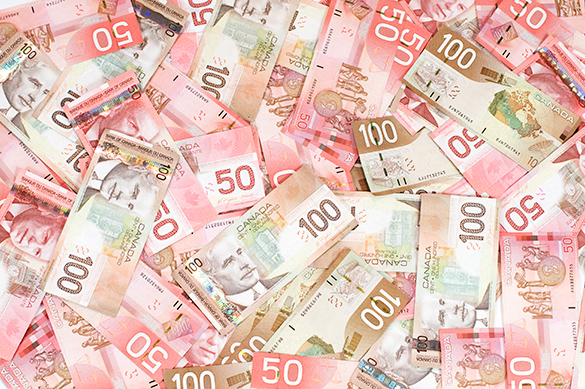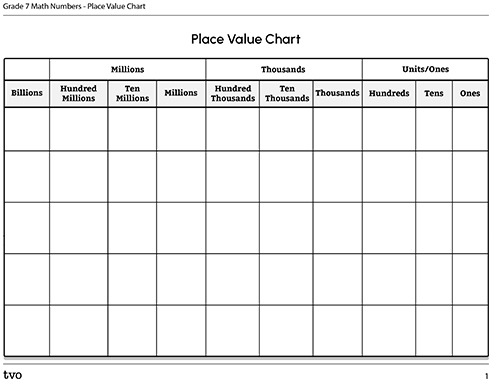Minds On
Where’s my place?
Consider the following number:
847,241
What is the difference between the first digit 4 and the second digit 4?
How many ways can you express each digit four?

Action
Reading and writing large numbers
Our number system is based on a simple pattern of tens. Each place has ten times the value of the place to its right.
The place or position of a digit determines its value (place value).
You may have used base ten blocks to show place value:

We arrange numbers into groups of three places called periods. The places within periods repeat (hundreds, tens, ones; hundreds, tens, ones; and so on).
The number 905,346,521 is read as:
nine hundred five million, three hundred forty-six thousand, five hundred twenty-one.
The digit three is in the hundred thousands place.
The value of the digit 3 in the hundred thousands place is 300,000.
For example:
| Trillions | Billions | ||||
|---|---|---|---|---|---|
| 100s | 10s | 1s | 100s | 10s | 1s |
| n × 1014 | n × 1013 | n × 1012 | n × 1011 | n × 1010 | n × 109 |
| Millions | ||
|---|---|---|
| 100s | 10s | 1s |
| n × 108 | n × 107 | n × 106 |
| Thousands | |||||
|---|---|---|---|---|---|
| 100s | 10s | 1s | 100s | 10s | 1s |
| n × 105 | n × 104 | n × 103 | n × 102 | n × 101 | n × 100 |
What’s my number?
The following game can be played on your own, in partners or as a group.

You will need:
- a deck of cards with the face cards taken out. (1-10)
- Place value chart up to one billion.
- Mathify white board (mathify.org)
Complete the printable Place Value Chart below or use an organizational tool of your choice to help you get started.
Explain the strategy of winning a game to a friend. Use a variety of representations in your explanation.
The object of the game is to create the biggest number you can from digits randomly chosen from the deck. Cards are shuffled and face down. If you pick up a 10 it is zero. Pick one card at a time and place it wherever you want until the place value chart is filled.
Once you write down a digit you cannot change its spot.
When you’re done with your number, take turns reading out the number.
You can play the game multiple times.
Choose one of the numbers you created and respond to the following:
- Did you create the largest possible number? If not, what would be the largest number with the digits available?
- Express your number in words and expanded form using powers of 10.
- Remove any one digit and randomly choose another card. Express the smallest number possible using the digits you now have available.
There are many ways to write the same whole number.
| Form | Example |
|---|---|
| Standard | 546,872 |
| Word | Five hundred forty-six thousand, eight hundred seventy-two |
| Expanded | (5 × 100,000) + (4 × 10,000) + (6 × 1,000) + (8 × 100) + (7 × 10) + (2 × 1) |
| Exponential | (5 × 105) + (4 × 104) + (6 × 103) + (8 × 102) + (7 × 101) + (2 × 100) |
Practice
Practice recording the following numbers in standard form, word form, expanded form and exponential form:
a) 546,212
b) 277,632
c) 1,918,232
Share your responses with a partner, if possible. Are your recordings the same?
Consolidation
Random numbers to a billion
Using the same place value chart, randomly choose 9 playing cards from the deck each time to create 3 new large numbers.
Order your three new numbers from least to greatest and explain how you know they should be in this order, based on what you learned about place value in the action activity.
Choose 9 new cards to create the smallest number you can.

Can you re-arrange these cards to make it the new largest number? How did the place value of each digit change?
If you cannot create the new largest number with the cards you have, choose one to switch to another digit. Which one would you switch and why?
Reflection
As you read the following descriptions, select the one that best describes your current understanding of the learning in this activity. Press the corresponding button once you have made your choice.
I feel...
Now, expand on your ideas by recording your thoughts using a voice recorder, speech-to-text, or writing tool.
When you review your notes on this learning activity later, reflect on whether you would select a different description based on your further review of the material in this learning activity.
Press ‘Discover More’ to extend your skills.
Discover MoreHow much is half of a billion dollars?

Imagine you were given half a billion dollars! That’s $500 million! How would you spend it? It seems like a lot but now you are faced with new life decisions with all this money. Tuition, accommodation, transportation, food, and charitable donations, are just a few of the possible opportunities to spend the money in socially conscious ways.
Use the following chart to log all your expenditures. Research costs and prices of everything from college tuition, car purchases, buying a home, investments, travel, and charitable donations and record where you found them. Include any applicable taxes (on purchases, income and property). You must spend the money on the items listed before you can make free choices.
Complete the Expenditure chart in your notebook or use the following fillable and printable document to log all your expenditures.
Press the ‘Activity’ button to access Expenditure chart.
| Expenditures category | Cost research location | Total spending |
|---|---|---|
| Buying a new Home: Investigate current real estate in your local market and spend a portion of your money on a new house. Calculate money needed to maintain your property as well. | ||
| College / University Tuition: Research the costs of Universities, Room and Board, and other expenditures. | ||
|
Cars: What is your dream car? There’s no wrong choice if you have the money to spend. |
||
| Charitable Donations: Research many credible charities and donate to a charity of their choice. | ||
|
Vacation: Research your dream vacation for the family. Include hotel, flight and travel spending (food and activities). |
||
|
Gifts: Purchase gifts for your family. |
||
|
Investments (stock market) Stock 1: |
||
| Stock 2: | ||
| Stock 3: | ||
| Stock 4: |
Totals and reflection
It’s time to put together all the calculations and make sure there’s some money left to live on. This is also a time to make reflections on the choices that you made and the money that was spent.
- How did you spend the money? What was the costliest item?
- Do you have money left for the rest of your living expenses?
- Do you think you spent it too fast or did you feel you didn’t know what to do with it?
- What if it were one million? One billion? How would that change how you spent the money?
- Research the annual income of a career of your choice. If your spending was based on this salary how would the listed purchases change? Based on your career of choice what educational background do you have to invest in? What are the costs?
- How much money would you spend on average per year? How long will the money last based on your spending and other income? Will it last your whole lifetime?

Connect with a TVO Mathify tutor
Think of TVO Mathify as your own personalized math coach, here to support your learning at home. Press ‘TVO Mathify’ to connect with an Ontario Certified Teacher math tutor of your choice. You will need a TVO Mathify login to access this resource.
TVO Mathify (Opens in new window)